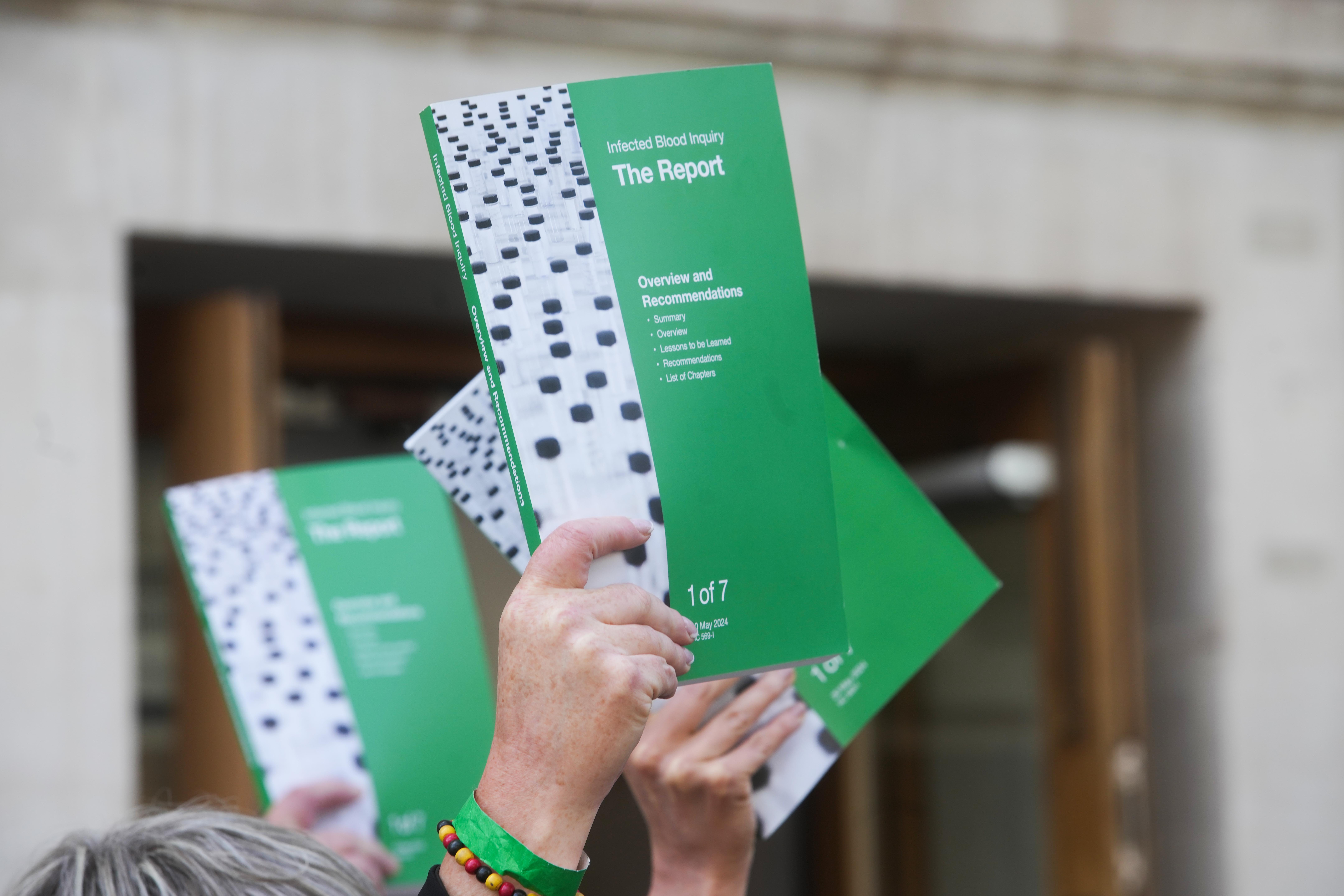I never thought I’d see the day report was published, says infected blood victim
The chair of the Infected Blood Inquiry described the scandal as a ‘calamity’ as he published the long-awaited findings.

Your support helps us to tell the story
From reproductive rights to climate change to Big Tech, The Independent is on the ground when the story is developing. Whether it's investigating the financials of Elon Musk's pro-Trump PAC or producing our latest documentary, 'The A Word', which shines a light on the American women fighting for reproductive rights, we know how important it is to parse out the facts from the messaging.
At such a critical moment in US history, we need reporters on the ground. Your donation allows us to keep sending journalists to speak to both sides of the story.
The Independent is trusted by Americans across the entire political spectrum. And unlike many other quality news outlets, we choose not to lock Americans out of our reporting and analysis with paywalls. We believe quality journalism should be available to everyone, paid for by those who can afford it.
Your support makes all the difference.One of the victims of the infected blood scandal has said she never thought she would see the day the inquiry’s final report was released.
Gill Fyffe, from Perthshire, was infected with Hepatitis C in 1988 after receiving a blood transfusion during the birth of her daughter.
It took seven years – during which she experienced extreme fatigue and was forced to give up work – for her to be notified the blood had been infected.
On Monday, the findings of a long-running inquiry were released, with chairman Sir Brian Langstaff finding more than 30,000 people were infected with contaminated blood between the 1970s and 1990s, which he described as a “calamity”.
Deliberate attempts, the inquiry found, were made to cover up what had happened and patients were knowingly exposed to an unacceptable level of risk.
Speaking to BBC Radio Scotland on Tuesday, Ms Fyffe said: “It was a day I thought I’d never see.”
She added: “It’s been a curious mixture – there’s a feeling of elation which I can only say is comparable to a feeling of freedom.”
But there was also a feeling of “desperate regret” for those at an event in London where the findings were published.
“If only we had had this judgement 30 years ago,” she said.
I think the biggest thing for me is I hope my children had a happy childhood, but I wish it would have been different from this
Fighting back tears, Ms Fyffe continued: “I think the biggest thing for me is I hope my children had a happy childhood, but I wish it would have been different from this.
“I think they had a happy childhood but I so would have liked not to have this burden.”
When she found out about the infection, Ms Fyffe and her family thought she was either the only one impacted by a freak occurrence or part of a small group.
“We had no idea the extent of it,” she said.
The UK Government is set to announce a compensation package for those impacted with £10 billion believed to have been earmarked.
The 65-year-old – who has had to sell her home as a result of the financial toll and is still “firefighting” to this day – said a Government settlement would provide “financial security” and would make a “huge difference” to her children’s future.
“I think it would give them their lives back if we had some financial security,” she said.
Compensation, she added, would also allow her to do some of the things she missed out on while being sick, such as writing.